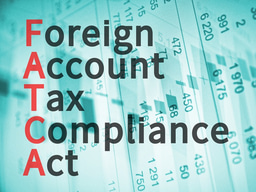Are you a US expat? It's time to file your tax return - here's what you need to know!

Unfortunately, living abroad doesn’t exempt Americans from US tax filing obligations. Furthermore, there are key differences between filing US taxes from abroad and from in the States. Read on to find out what you need to know when filing your US tax return as a US expat.
Step 1 - Know your filing dates
While any US taxes owed should still be paid by April 15th, expats have until June 15th to file. A further extension is also available upon request until October 15th. Many expats still aim to file before April 15th though, in case they find they do owe US taxes, and also just to get it out the way.
Step 2 - Claim your exclusions
Expats who earn under $100,000 a year often choose to claim the Foreign Earned Income Exclusion, which lets them exclude up to around $100,000 (the exact figure rises a little each year) of their worldwide income from US tax liability.
To claim the Foreign Earned Income Exclusion, you have to prove that you live abroad using one of two tests, the Bona Fide Residence Test, or the Physical Presence Test.
The Bona Fide Residence Test requires you to prove permanent residence in another country, with a residence visa, or other proof that your permanent home is abroad.
The Physical Presence test meanwhile requires you to prove that you’ve spent 330 days in a 365 day period that overlaps with the tax year outside the US.
If you can prove that you live abroad in one of these two ways, you can claim the Foreign Earned Income Exclusions by filing form 2555 with your tax return.
The Foreign Earned Income Exclusions isn’t the best option for everybody though. If you pay more tax in a foreign country than you would owe to the IRS, you may be better off claiming the Foreign Tax Credit instead, which gives you a $1 US tax credit for every dollar of tax you’ve paid abroad. In this way, if you’ve paid more tax abroad than you owe to the IRS, you can claim more tax credits than the tax you owe, carrying the excess credits forward for use in the future. To claim the Foreign Tax Credit, you should file form 1116.
If you earn over around $100,000, you have options, including claiming the Foreign Housing Exclusion if you rent a home abroad, or both the Foreign Earned Income Exclusion and the Foreign tax Credit. If you claim the Foreign Earned Income Exclusion however you can only claim the Foreign tax Credit on tax paid on your income over around $100,000.
Step 3 - Foreign account reporting
Americans with foreign bank or investment accounts with a combined total balance of over $10,000 at any time during the tax year are required to report all their foreign accounts by filing FinCEN form 114, also known as an FBAR (Foreign Bank Account Report).
Qualifying accounts also include any accounts that the tax payer has signatory authority or control over, which may include business accounts, joint accounts, or perhaps investment accounts held in trust.
Penalties for not filing FBARs (or filing an incomplete or incorrect FBAR) start at $10,000 per year, so it’s important to check carefully whether you need to file, and not to hide anything.
Over 200,000 foreign financial institutions are reporting their American account holders to the IRS, including balances, so the IRS knows if you should be filing.
Step 4 - Foreign asset reporting
FATCA (the Foreign Account Tax Compliance Act) requires expats with assets worth over $200,000, not including tangible, physical assets such as property or cars, to report them by filing form 8938 with their federal tax return.
Step 5 - If in doubt, seek help
Filing taxes as an expat can be complex, due to the extra reporting requirements, so if you aren’t sure what exactly you need to report or file, don’t hesitate to contact an expat tax specialist for some advice. In all likelihood, this will save you more money than it will cost you - not to mention a whole load of time and hassle.
With clients in over 150 countries worldwide, Bright!Tax is a leading provider of US expat tax services to the estimated 9 million Americans living overseas.





Please sign in or register for FREE
Sign in OR sign up to become a registered The Forum for Expatriate Management website user
Subscribe here